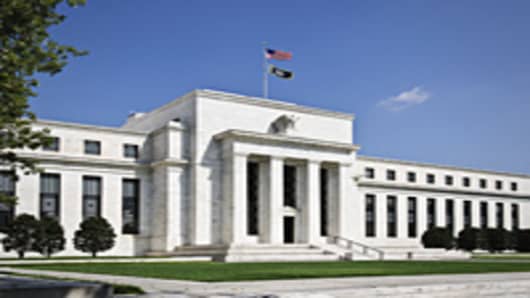Both the New York Federal Reserve and Bank of America have been trying to calm jittery markets today by explaining that the Fed isn’t taking a regulatory action against Bank of America.
Why should the Fed have to explain this? Because yesterday the Fed’s Maiden Laneoperation was part of a group of bond investors that were demanding Bank of America buy back loans included in $47 billion of mortgage-backed securities.
That puts Bank of America in an awkward position. One of its primary regulators is demanding that it repurchase mortgages that were allegedly ineligible to be included in the pools that underlay the mortgage backed-securities. But the regulator isn’t doing it as a regulator—it’s doing it as an owner of the securities.
Both Bank of America and the Fed are trying to parse out the Fed’s weird role here. But when is a regulator not a regulator?
Let’s go through this one more time. The Federal Reserve is one of the primary regulators of the banking sector (the FDIC is the other one). It has authority to force banks to undertake almost any action it decides is necessary for the health of the financial system and the economy. The breadth of the Fed’s regulatory authority is extraordinary, especially following the passage of Dodd-Frank.
But in this case the Fed isn’t using that authority. Instead, the New York Fed is acting as a private buyer of mortgage-backed securities. Through its Maiden Lane funds, the NY Fed has purchased billions in mortgage-backed securities as part of the bailouts of Bear Stearns and AIG.
To make matters even more confusing, Bank of America’s liability in this matter arises because it purchased Countrywide, which is the servicer for the mortgage-backed securities at issue. The acquisition of Countrywide in 2008 was approved by the Fed. Lots of people think the government actually asked Bank of America to acquire Countrywide to prevent the mortgage lender from outright failure.
There seems to be one sharp lesson from all of this: The Fed’s decision to become an owner of mortgage-backed securities has created an uncomfortable tension with its role as a regulator. And that tension is now hurting Bank of America, confusing investors, and forcing the Fed to quietly try to explain that sometimes a regulator isn’t a regulator.
Questions? Comments? Email us atNetNet@cnbc.com
Follow John on Twitter @ twitter.com/Carney
Follow NetNet on Twitter @ twitter.com/CNBCnetnet
Facebook us @ www.facebook.com/NetNetCNBC



